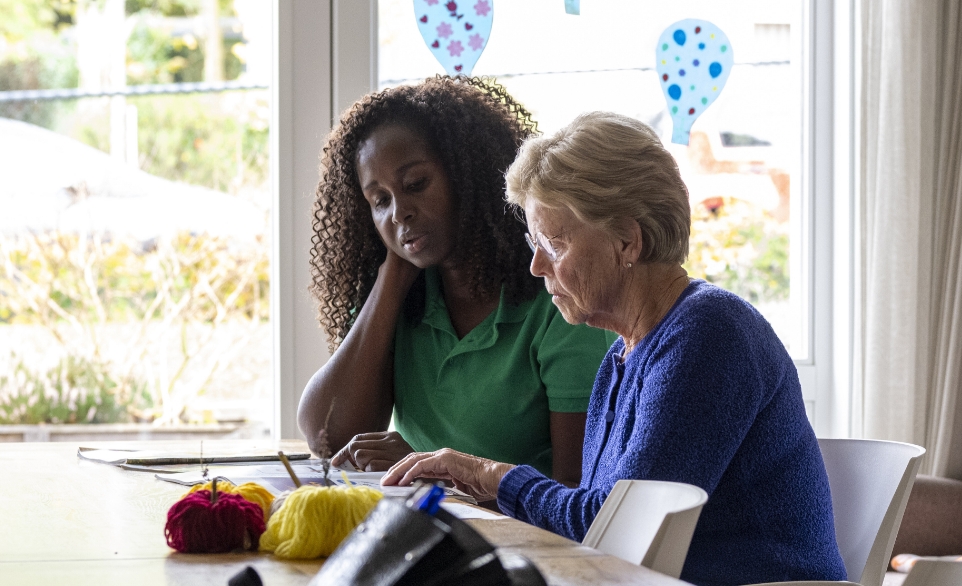
In social care, recruitment might win the battle — but retention wins the war. You can’t build a reliable, compassionate, and consistent care team if you’re constantly starting over. The best care providers know that the moment a carer says “yes” to the job offer, the retention journey begins.
At SisterStaff, we’ve supported hundreds of care businesses in building strong, sustainable teams. And we’ve seen one universal truth time and again: if you want carers to stay, what you do in their first few days and weeks matters most.
Here’s how to get it right — and keep your carers for the long haul.
-
Make Day One Feel Like Day One of a Career, Not Just a Job
The first impression your organisation makes sets the tone for everything that follows. Too many providers make the mistake of treating onboarding like a checklist: handbooks, shadowing, and a rota. But for a carer to feel invested, they need to feel valued from the start.
Ask yourself:
- Is someone there to greet them with a warm welcome?
- Do they have a clear schedule and plan for their first week?
- Are you explaining not just what they’ll do, but why it matters?
When a carer feels like they’ve joined a mission-driven organisation, not just filled a rota gap, they’re more likely to stay and grow with you.
-
Provide a Personalised, Professional Onboarding Experience
A great onboarding experience doesn’t need to be flashy — it needs to be thoughtful. Create a structured journey that includes:
- A named buddy or mentor to check in with regularly
- Mini milestones during the first 4 weeks (e.g., first solo shift, first positive client review)
- One-to-one time with their manager within the first 7 days
- A simple way to ask questions without judgment
Carers often leave in the first 6 weeks not because of the work, but because they feel unsupported, confused, or isolated. Eliminate that risk early.
-
Celebrate Early Wins and Show Appreciation
Retention isn’t just about what happens when things go wrong — it’s about reinforcing what’s going right.
During the first month:
- Acknowledge progress: “You handled that first shift with such confidence.”
- Celebrate compliments from clients and team members.
- Send a handwritten note or small welcome gift if possible.
Simple acts of recognition can make a huge difference, especially for carers who’ve come from previous roles where they felt invisible.
-
Set Expectations Clearly — and Kindly
One of the top reasons carers leave a new role early is because the job was not what they expected. Be honest and upfront about:
- Shift patterns
- Travel requirements
- Emotional challenges of the job
- Standards for professionalism, communication, and punctuality
But balance this with warmth and reassurance. You’re not just managing performance — you’re building trust.
-
Listen Early, Listen Often
Don’t wait until the 3-month review to ask how it’s going.
Set up check-ins in week 1, week 2, and week 4. Ask:
- “How are you finding things so far?”
- “Is there anything we can do to make your job easier?”
- “Are there any parts of the job you weren’t expecting?”
Carers rarely voice concerns unless invited. Create a culture where feedback is welcomed — and actioned.
-
Show the Path Ahead
Retention improves when carers can see a future with you.
Even in the first week, start planting seeds:
- “Some of our best team leaders started just like you.”
- “We offer additional training in dementia care, medication support, and leadership.”
- “You’ll always have someone here helping you grow.”
Carers don’t stay for jobs. They stay for opportunities. Show them what they can become.
-
Protect Their Work-Life Balance Early On
If a new carer feels burned out in the first month, they’re unlikely to stay.
Be mindful of:
- Overloading them with back-to-back shifts
- Giving them long travel routes right away
- Calling them in on every day off
Establish a rhythm that works for both sides. A sustainable start leads to sustainable retention.
-
Introduce Them to the Culture, Not Just the Clients
Carers want to feel part of something. Introduce them to:
- Team WhatsApp groups
- Monthly shoutouts or team newsletters
- Company values and stories
They should feel like more than just a name on a rota. Give them a sense of belonging, even before they’ve had time to build relationships.
-
Be Ready Before They Start
Too many new starters are left waiting on uniforms, ID badges, or rotas. This creates stress and signals disorganisation.
Before day one:
- Make sure their paperwork is complete
- Have a uniform or badge ready
- Share their first week’s rota in advance
Preparation shows respect. It tells them, “We’re ready for you — and we’re glad you’re here.”
-
Make Retention a Team Responsibility
It’s not just the manager’s job to make new carers feel welcome. Involve:
- Senior carers or mentors to support and buddy them
- Office staff who answer questions with kindness
- Clients (when appropriate) who know to expect a new face and provide feedback
A strong culture of retention is shared. It’s felt from every angle.
Final Thought: It’s the First 30 Days That Matter Most
Retention isn’t solved with a pay rise six months in. It starts on day one — with care, clarity, and connection. At SisterStaff, we help providers build that foundation by designing onboarding systems that feel human, not corporate.
Watch our SisterStaff Playlist on YouTube, and download our brochure, or book a call
When a carer starts strong, they stay longer. And when they stay longer, your clients get better care, your rota becomes stable, and your business becomes stronger.
Retention isn’t luck. It’s leadership.













